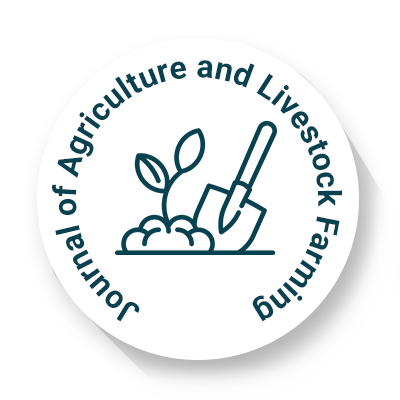
Journal of Agriculture and Livestock Farming
OPEN ACCESS

OPEN ACCESS
Gene Editing is a revolutionary technology capable of altering and making precise modifications in the DNA sequence of a living organism, essentially personalizing its genetic composition. This capability has transformed medicine, agriculture, and biotech research, offering potential solutions to genetic diseases, food security, and sustainable environments. Gene editing is executed using enzymes, particularly nucleases that have been designed to target a specific DNA sequence, where they create breaks in the DNA strands, allowing the elimination of existing DNA and the insertion of substitute DNA. A well-known molecular gene editing tool called CRISPR-Cas9 functions precisely, allowing researchers to remove and insert DNA at the specific and desired locations.
By using gene editing methods and techniques, scientists identify genetic variants influencing desirable traits, optimize genetic diversity, and understand the insights into how genes function. For many years, gene editing relied on traditional breeding methods, which selected plants based on their desirable characteristics and their responses to the environment. A wide range of applications for genome editing in plants includes improved disease resistance to lessen the demand for pesticides, among others. It is also used to enhance resistance to abiotic stress to reduce the impact of climate change on our food production. It improved agronomic traits to increase productivity, enhance crop yields and reduce pre-harvest losses. It's improved character attributes, strengthened qualities concerning health.
Modern agricultural production faces unparalleled challenges such as global warming, rapidly changing climatic conditions, soil salinization, and the accumulation of pollutants in the soil, resulting in harmful effects. Researchers are investigating ways to utilize gene-edited organisms for bioremediation, including bacteria modified to break down plastic waste or clean up oil spills.
With the ability, gene editing has the potential to transform healthcare, food production, and environmental conservation. By enabling personalized treatments, gene editing could lead to targeted therapies for diseases that were once estimated incurable, significantly enhancing human life expectancy and overall quality of life. Climate-resilient crops and disease-resistant livestock could help in securing global food supply, reducing hunger and malnutrition.